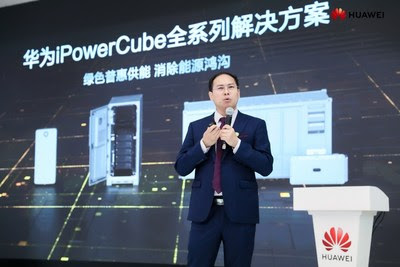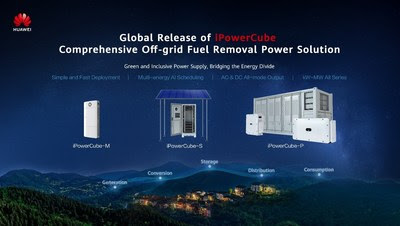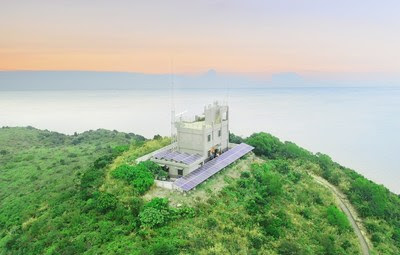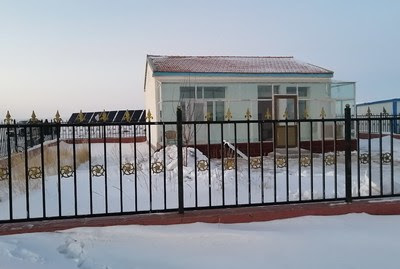SHANGHAI, 8 juin 2021 /PRNewswire/ — Lors de l’exposition SNEC Shanghai, Peng Jianhua, président de Site Power Facility, Huawei Digital Power

M. Peng a déclaré que l’approvisionnement en électricité était inégal dans le monde. Aujourd’hui, environ 800 millions de personnes vivent dans des zones montagneuses, des îles, des déserts et d’autres régions qui n’ont pas accès au réseau électrique. Dans ces régions, un grand nombre de groupes électrogènes diesel (GED) est utilisé pour la production d’électricité. Il y a plus de 50 millions de générateurs diesel dans le monde. Leur coût est plusieurs fois supérieur à celui du réseau électrique, et ils sont très polluants. 1 kg de diesel génère 3,18 kg d’émissions de carbone. Aussi, les GED sont onéreux, difficiles à entretenir et bruyants, ce qui affecte sérieusement la vie quotidienne des résidents et limite le développement économique local. Grâce à diverses avancées technologiques, le prix de l’énergie photovoltaïque et du stockage d’énergie diminue. Le remplacement des GED par l’énergie solaire afin de parvenir à une alimentation en électricité économique et verte devient une réalité.
La série complète de solutions d’alimentation hors réseau pour l’élimination de l’énergie combustible iPowerCube fournit une alimentation électrique verte et inclusive dans tous les scénarios de moyens de subsistance des personnes et de production industrielle.

La série complète de solutions d’alimentation hors réseau pour l’élimination de l’énergie combustible iPowerCube de Huawei intègre des technologies d’électronique de puissance (telles que les watts, la chaleur et le stockage d’énergie) et des technologies numériques (telles que le Cloud, l’IA et la connexion) pour rationaliser les flux d’énergie et les flux d’informations. Elles utilisent pleinement l’énergie photovoltaïque et le stockage d’énergie pour remplacer les GED, répondant ainsi aux besoins d’alimentation inclusifs des scénarios de consommation d’énergie à grande, moyenne et petite échelle. Par rapport aux solutions traditionnelles, les solutions iPowerCube se caractérisent par une reconstruction plus simple, un déploiement plus rapide et un coût plus bas, ce qui fait que ces solutions sont mieux adaptées aux zones où le réseau électrique est inexistant ou faible.
- Solution hors réseau d’élimination de l’énergie combustible à grande échelle iPowerCube-P :
Fournit une capacité d’alimentation électrique de l’ordre du mégawatt et s’applique aux scénarios de production industrielle tels que les mines, les usines et les campus, ainsi qu’aux scénarios de subsistance, c’est-à-dire aux grands villages, aux îles et aux stations balnéaires. Par rapport à la solution traditionnelle de couplage AC, la solution iPowerCube-P utilise l’architecture de couplage DC, ce qui réduit le temps de conversion de l’énergie, améliore le rendement, réduit l’investissement et le coût moyen actualisé de l’énergie (LCOE).
Au Cameroun, des centrales photovoltaïques de plus de 25 MW et des systèmes de stockage d’énergie de 60 MWh ont déjà adopté la solution hors réseau de Huawei, ce qui leur permet d’alimenter 350 villages isolés. Cela bénéficie à environ 50 000 foyers et environ 300 000 habitants.
- Solution hors réseau d’élimination de l’énergie combustible à moyenne échelle iPowerCube-S :
Fournit une capacité d’alimentation électrique de 100 kW et s’applique aux scénarios de subsistance comme les petits villages et les petites îles, ainsi qu’aux scénarios de production industrielle tels que les puits de pétrole et de gaz, les postes de contrôle et les stations de transport. Par rapport à une solution traditionnelle de type « split », la solution iPowerCube-S de Huawei adopte la préintégration et ne nécessite pas de reconstruction du réseau de distribution, ce qui raccourcit la période de déploiement et réduit l’investissement.

À Zhuhai, la solution iPowerCube-S de Huawei est utilisée pour remplacer le GED d’origine et alimenter en électricité les équipements professionnels et les habitations de la station de navigation de l’île. Ainsi, le GED n’est plus nécessaire. Le coût moyen actualisé de l’énergie a baissé de 60 %, les coûts liés au GED baissent de 220 000 de yuans par an, et 25 tonnes d’émissions de carbone sont évitées.
- Solution hors réseau d’élimination de l’énergie combustible à petite échelle iPowerCube-M :
Offre une capacité d’alimentation électrique de 10 kW et s’applique à des scénarios résidentiels (tels que des appartements sans ou avec une faible alimentation électrique et des villas rurales) et à des scénarios industriels et commerciaux (tels que des magasins, des restaurants et des commerces). Par rapport à la solution traditionnelle combinant un générateur à essence et des batteries, la solution iPowerCube-M de Huawei se caractérise par un déploiement plus souple, une conception ultra silencieuse, une fiabilité accrue et un coût d’exploitation à long terme plus faible.

En Mongolie-Intérieure, l’iPowerCube-M utilise un système photovoltaïque efficace couplé à un système de stockage d’énergie pour fournir une alimentation fiable 24 heures sur 24 et 7 jours sur 7, utile aux bergers dans leur vie quotidienne et leurs activités.
Coopération gagnant-gagnant : Huawei Site Power collabore avec ses clients pour promouvoir le développement vert.
À l’avenir, Huawei Site Power s’en tiendra à une stratégie d’ouverture et de coopération et intensifiera sa collaboration avec ses clients, ses partenaires, les organisations industrielles et les organismes de normalisation en termes de technologies, de produits et d’industrie, afin de promouvoir le développement vert, de combler la fracture énergétique et de construire une société à faible émission de carbone.
À propos de Huawei
Fondé en 1987, Huawei est l’un des principaux fournisseurs mondiaux d’infrastructures de technologies de l’information et des communications (TIC) et d’appareils intelligents. Nous comptons plus de 197 000 employés, et nous opérons dans plus de 170 pays et régions, au service de plus de trois milliards de personnes dans le monde.
Notre vision et notre mission sont d’apporter le numérique à chaque personne, foyer et entreprise pour un monde intelligent et totalement connecté. À cette fin, nous favoriserons une connectivité omniprésente et l’égalité d’accès aux réseaux ; nous apporterons l’intelligence artificielle et le Cloud aux quatre coins du monde pour fournir une puissance de calcul supérieure là où vous en avez besoin, quand vous en avez besoin ; nous créerons des plateformes numériques pour aider tous les secteurs et toutes les entreprises à devenir plus agiles, efficaces et dynamiques ; nous redéfinirons l’expérience utilisateur avec l’IA, en la rendant plus personnalisée pour les individus dans tous les aspects de leur vie, qu’ils soient à la maison, au bureau ou en déplacement. Pour plus d’informations, visitez le site Web www.huawei.com ou suivez Huawei sur les réseaux sociaux :
http://www.linkedin.com/
http://www.twitter.com/Huawei
http://www.facebook.com/Huawei
http://www.youtube.com/Huawei
Photo : https://mma.
Photo : https://mma.
Photo : https://mma.
Photo : https://mma.
